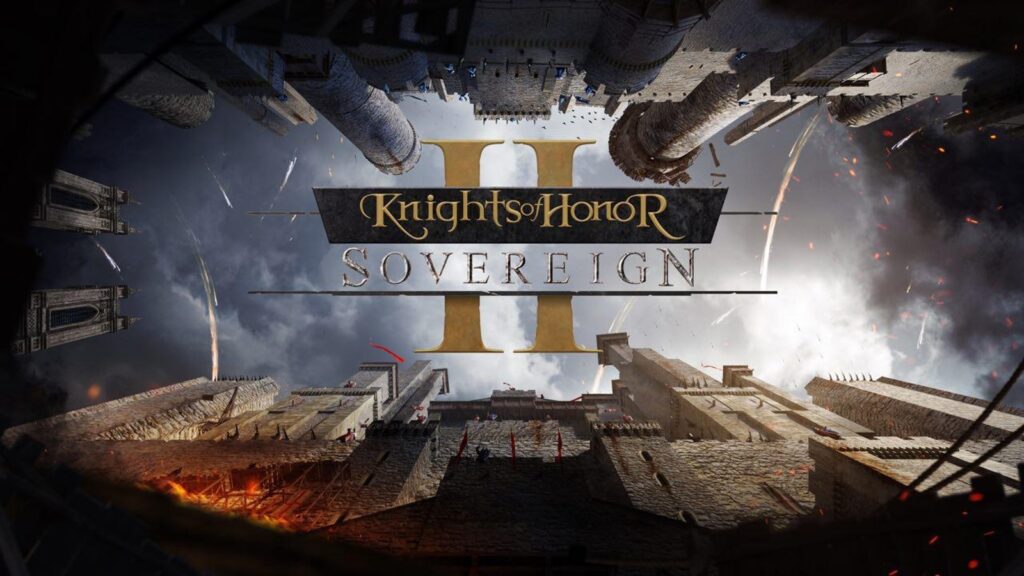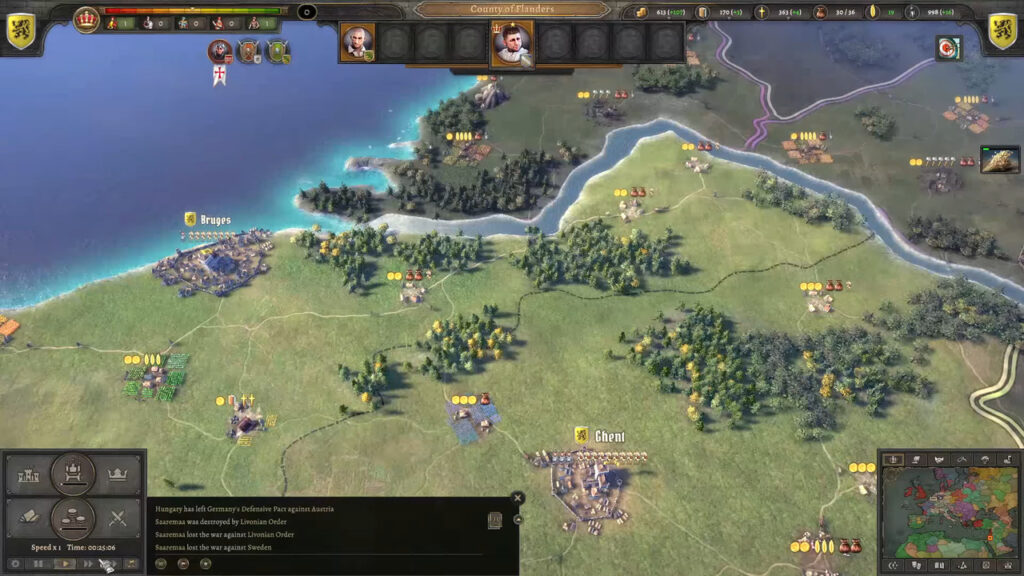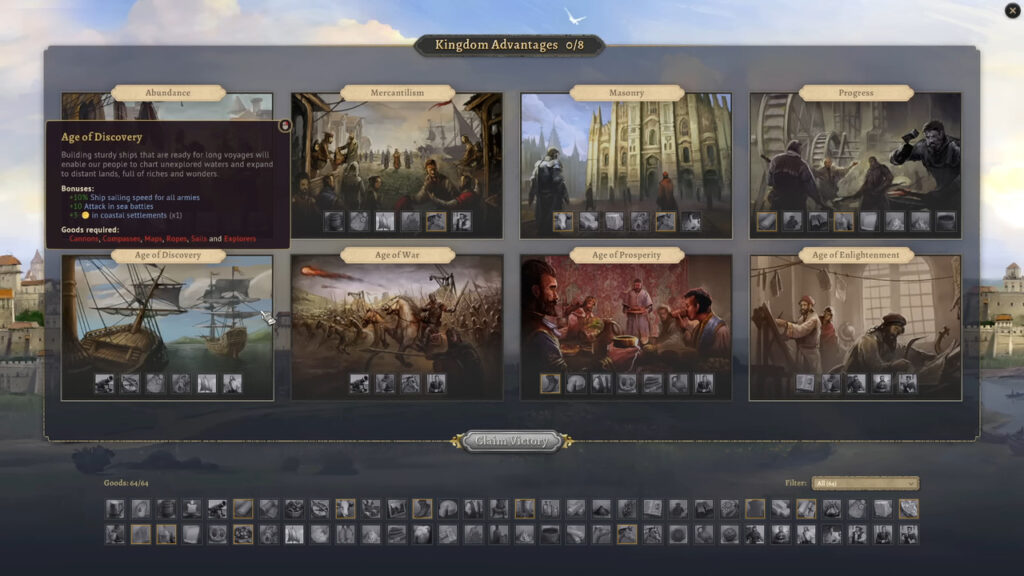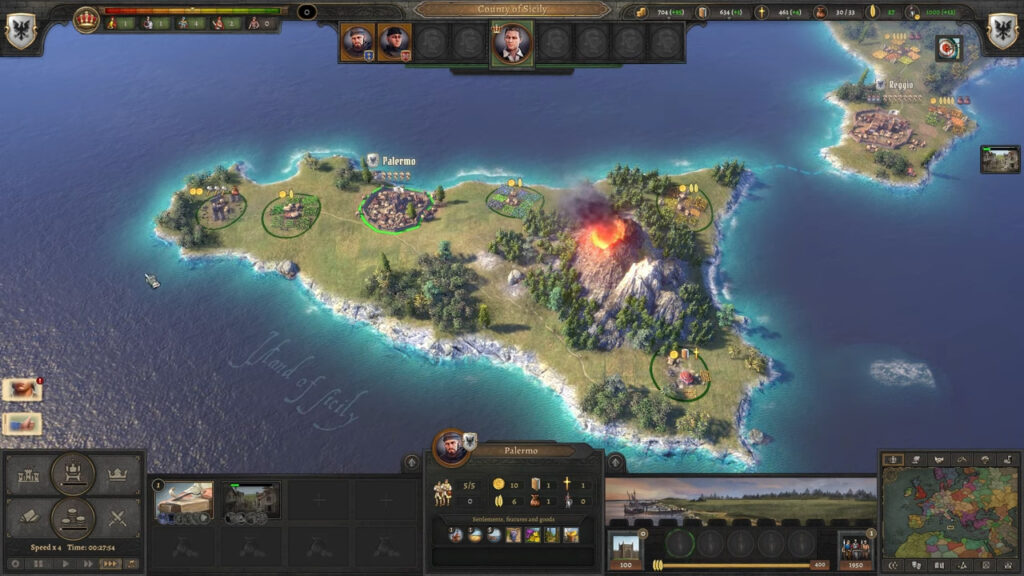
Developer: Black Sea Games
Publisher: THQ Nordic
Platform: PC
Tested on: PC
Knights of Honor II: Sovereign – Review
Back in 2004, Bulgarian developer Black Sea Studios released Knights of Honor, a Grand Strategy game that received critical acclaim but failed to really capture the attention of the general public. Although Knights of Honor found a home with a niche audience, it didn’t seem likely that it would ever get a sequel. Until THQ Nordic stepped in, that is: They teamed up with former Black Sea Studios employees (now known as Black Sea Games) to revive the Knights of Honor franchise with Knights of Honor II: Sovereign. Nearly two decades have passed since that original release, and the market has changed immensely since, with plenty of other games vying for the attention of the same audience. Does Sovereign have what it takes to cement its position as a Grand Strategy game or is this an IP that should have remained buried under the sands of time?
Story
There isn’t a true story present in Sovereign, at least not in the traditional sense. After choosing a specific medieval period and a starting point on the world map, you take on the role of the ruler of a kingdom, and you aim to define your place in history. The world map covers a significant portion of the Eurasian continent, as well as parts of Africa. Starting kingdoms feature different cities, resources, and borders depending on the year you start in, either 1110, 1224, or 1360 A.D. These years weren’t picked randomly, as they represent the height of power of certain specific nations and their enemies. Playing in 1110 means that Vikings inhabit Scandinavia, for example, whereas the year 1224 sees Mongol hordes in the East. These relatively minor changes have a dramatic effect on how a game of Sovereign can play out even though the basic formula remains relatively unchanged.
We expected Sovereign to be mostly historically accurate, but when we looked at our home region of Flanders we did notice that Sovereign was a bit looser with history than we anticipated. Major cities weren’t located where they should be, with trade hub Ghent located where Brussels would be, at least in relation to nearby Cologne in Germany. Our knowledge of medieval Europe isn’t entirely up to snuff, but we assume that the same fast and loose interpretation of history was applied to other kingdoms as well. We’re nitpicking here, of course, but we imagine that a significant part of Sovereign’s potential audience are sticklers for historical accuracy. It’s not as egregious as Expedition: Rome’s female Legatus, but if you’re a history buff, this might still grind your gears.
Graphics
At first glance, Sovereign is a visually impressive title, with a gorgeous overworld map that shows your kingdom and its surrounding territories from an aerial view. That map is what you’ll be looking at most of the time as cities grow and borders are redrawn. When you zoom out, the world comes into view and this is stylized as an actual medieval world map which also looks fantastic, whereas real-time combat visuals feel reminiscent of old-school RTS games a la Age of Empires. Sovereign isn’t the most taxing game, and the visual performance is suitably good. The game does occasionally drop the ball when it comes to visual fidelity when things become a bit more intense, such as during battles, where the resolution seems to take a hit. Of course, Sovereign isn’t a game that exists as a showcase for high-end graphics, and it’s good enough for what it wants to be, even if details look fuzzy occasionally.
Sound
While we appreciate Sovereign’s soothing soundtrack for what it is, we did feel like it needed a bit more variety. Playing a game of Sovereign takes several hours and you’ll be hearing the same tunes over and over again, which does get stale. Sound effects are decent but don’t really stand out, and although there is plenty of voice acting present, it can be a mixed bag, even though the performances range from great to just okay. There weren’t any performances that really felt phoned in.
Gameplay
Given the age of the first Knights of Honor title, it’s likely that many players aren’t familiar with the first game. We weren’t either, so we can’t compare Sovereign to the first game, and thus we’re looking at it with fresh eyes. Fortunately, Sovereign appears to be a good entry point, not just into the Knights of Honor universe but also into the Grand Strategy genre. For the uninitiated, a Grand Strategy game plays similarly to a 4X strategy title, with the main difference being that gameplay is asymmetrical. There are different ways to ‘win’ Sovereign, whether it is by waging war, building a prosperous economy, or bribing and manipulating your way to the top of the food chain. Depending on where you choose to start your kingdom, you have different resources at your disposal, and likewise, different approaches are more efficient. No matter which path to glory you choose to pursue though, you’ll need to keep every aspect of Sovereign’s gameplay in mind, as well as your opponents’ goals.
Compared to heavy hitters like Europa Universalis or Crusader Kings, Sovereign feels a lot more accessible and a lot less overwhelming to newcomers. We won’t dismiss Sovereign as ‘baby’s first Grand Strategy game’ because there is still plenty of depth here, but the game is built up in such a way that you don’t need to study its finer mechanics for three weeks before you’re able to win a game. Your strategy is defined by your royal council, which you appoint early on in the game. The members of this advice organ each specialize in a specific aspect of Sovereign’s gameplay, whether that is trade, religion, diplomacy, or even espionage. You can focus on the specific aspects that further your own strategy, but it’s important to keep an eye on less crucial elements. A nation that heavily banks on its economy still needs an army to defend itself, for example, but if your kingdom is rich, then you can simply opt for a smaller but heavily armed force rather than a massive horde of poorly equipped peasants. Being able to use the tools at your disposal in different ways ensures replayability and encourages experimentation. Throughout our time with the game, we ran into too many options to steer your nation towards its goal to list, and we are sure we haven’t seen them all yet.
Sovereign sets itself apart from its competitors in how it approaches combat. Most Grand Strategy games simply resolve combat by comparing the power of your army against the army of an opponent, with the strongest one winning. This is something that also rings true for Sovereign, but you can also choose to play out battles in real-time. If you’re approaching Sovereign as a typical Grand Strategy title, this may seem like a waste of time, especially if your army is more powerful. However, if you take the real-time combat route then you might actually turn a guaranteed loss into an easy victory, as the AI isn’t the brightest. If you’re expecting a full-fledged RTS game, then you might end up disappointed as Sovereign’s approach to combat lacks depth and feels barebones, but as an additional feature to a Grand Strategy game, it’s a fun distraction from the main game. The Grand Strategy/RTS hybridization found here is an example of a sum that is greater than its parts.
With three time periods, dozens of kingdoms to choose from, and various difficulty levels, Sovereign already feels like a fairly complete product, of course, with lots of replayability and potentially hundreds of hours of gameplay before things start to feel stale and repetitive. That’s without even getting into online multiplayer, which is already present here as well. However, there are definitely areas that would benefit from fleshing out, including the currently fairly shallow real-time battles. We expect that Sovereign in its current state isn’t the final product either way, as a title of this caliber has plenty of room for DLC and expansions. The game has everything it needs to become an evergreen in the Grand Strategy genre with a couple of updates. Of course, it needs to find its audience first to be successful and in a highly competitive market dominated by a handful of mainstays, the question remains whether or not Sovereign is able to rise to the throne.
Conclusion
Whether or not Sovereign is up your alley really depends on your expectations and how much experience you have with Grand Strategy games. The game lacks the insane depth that is present with some of its direct competitors but even so, there is still plenty of strategic gameplay to sink your teeth into. Combined with unprecedented accessibility, Sovereign is an ideal title for anyone looking to give the genre a try. Sovereign’s secondary claim to fame lies in the real-time battles it offers, but there isn’t enough depth here to really recommend the game solely on these. However, the hybridization of Grand Strategy and real-time battles makes for a complete package that is both compelling and entertaining.
Knights of Honor II: Sovereign - Review,









No Comments